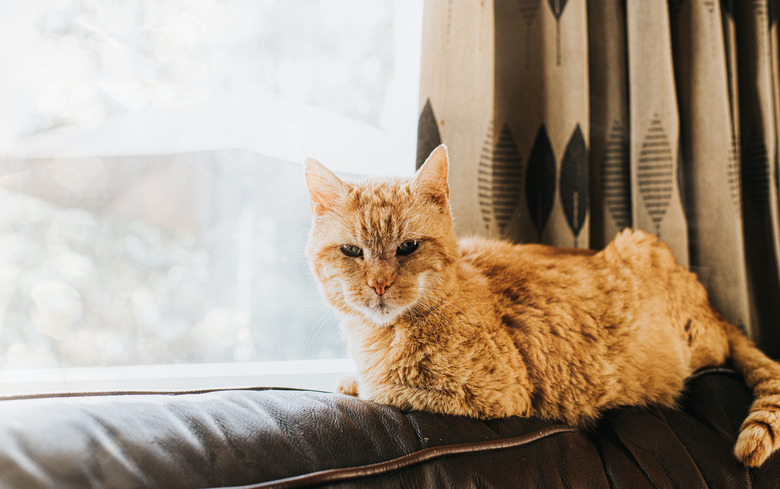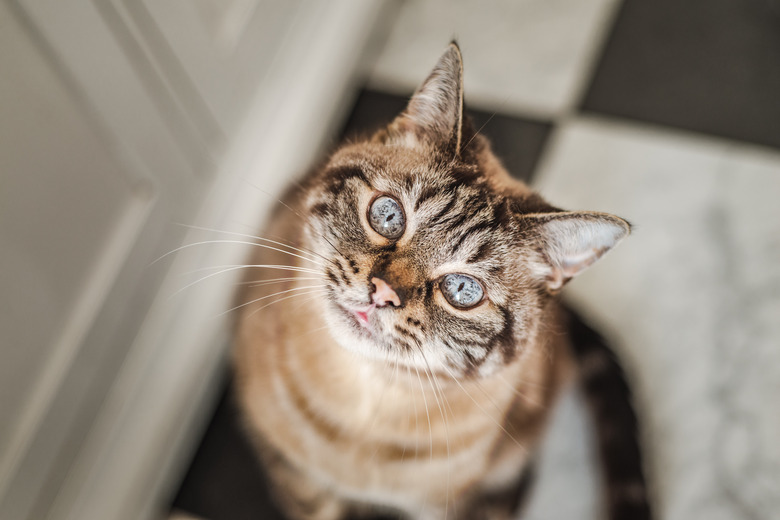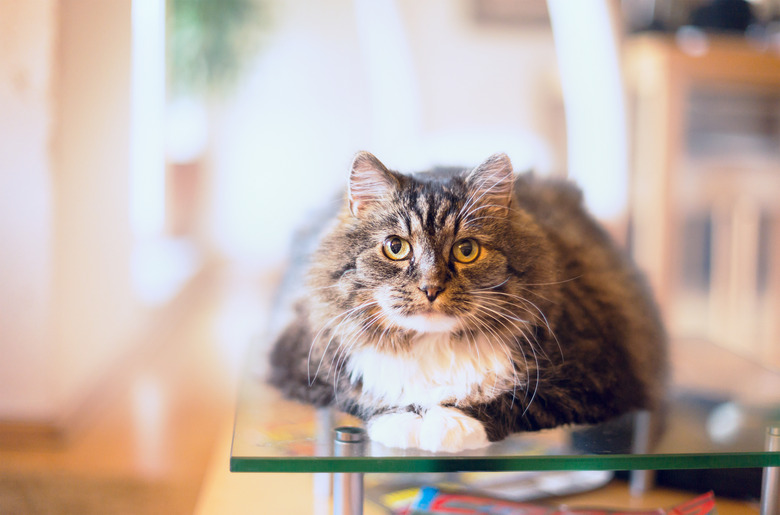Signs Of An Old Cat Dying
While cats can live healthy lives into their late teens and even early 20s, there comes a time when your pet will begin to decline, either due to old age or a progressive or terminal medical issue. Recognizing the signs a cat is dying of old age will help you make the most loving and compassionate choices for her and for yourself.
Be aware of health issues
Be aware of health issues
Elderly cats need regular vet checkups, both to assess overall well-being and to identify and treat medical issues, even if that treatment is not curative but palliative, or a matter of providing physical comforts and pain-relieving medications, if called for.
Understanding your pet's changing health will help you make her more comfortable toward the end and will give you an idea of what to expect as her final stage of life approaches. Your vet can be a good resource for helping you make decisions based on your cat's unique condition and your personal needs.
Physical and emotional behaviors
Physical and emotional behaviors
When cats are dying, they tend to seek out hiding places, sleep a great deal, and even isolate themselves to some degree. It's no reflection of your cat's love for you, it's just a natural tendency as she nears the end. Make sure the place she's chosen is warm, quiet, easy to access, and free of drafts.
She may have trouble with mobility and vision, so relocate her litter box and feeding bowls if necessary to make it easier on her. You'll likely see a decline in how much she eats and drinks, but always make food and water available. She may miss her litter box, so place absorbent, waterproof pads underneath her and the box to help minimize accident cleanup.
Body temperature and appearance
Body temperature and appearance
Older cats may have a hard time grooming themselves, and paired with a declining appetite, may lose weight or become dehydrated. This can give your cat an unkempt or scruffy appearance. Help with gentle grooming, if your cat will let you. She may cry or even try to claw you if soft brushing hurts, so follow her cues in how much physical contact you have.
Follow your vet's instructions about how best to feed and hydrate your cat in her final weeks and days. Specially prepared soft foods may be in order. Consider sitting quietly next to your cat and talking to her or playing music so she knows she's not alone. You may notice a drop in body temperature and labored or decreased breath sounds as the end draws near.
Making hard decisions
Making hard decisions
Depending on your cat's medical prognosis and the signs a cat is dying of old age, there may come a time when you and your vet decide it's in your cat's best interest to make the compassionate and loving choice to euthanize her. While this can be an emotional decision, it's often the most loving thing to do for your companion, particularly if she's in pain or has a significantly diminished quality of life.
Your vet can help you understand this painless procedure, which usually involves administering a lethal, high-dose sedative. Your vet likely will give you the option of holding your cat or being with her during the process.


